Higher Studies and Migration
Introduction
To balance consensus and the workforce between big cities and small towns, the government has a policy of expanding the issuance of visas for foreigners studying and working in suburban areas.

Entrust Your Journey to Higher Studies and Successful Migration to South Korea with Us.
The Government of South Korea facilitates higher studies and migration to the country, capitalizing on its evolving pro-immigration stance and offering expanding opportunities for permanent residency and the government’s initiatives, which include financial incentives for both institutions and individuals, significantly contribute to this appeal. Moreover, there is comprehensive employment support for those extending their stay and contributing to the nation’s dynamic workforce.
Join VLO Korean Academy for the exploration of higher studies and migration. We offer the most professional guidance for your new life in Korea.
Higher Study & Migration
STUDY KOREA 300K (2023.8)
The government aims to reach 300,000 international students by 2027. After completing studies, students can obtain a residence visa that allows them to settle and work in the area.
K- POINT E74 (2023.9)
The ‘Innovative Expansion Plan for 35,000 Skilled Workers (K-point E74)’ has implemented since September 25, 2023. Foreign workers who have been in Korea for more than four years, possess Korean language proficiency, and meet specific conditions are allowed to switch to a skilled laborer (E-7-4) visa. Foreign workers who entered the country as simple laborers (E-9, etc.) will be eligible to obtain permanent residency in stages under this system.
Root Industries System
Foreign Labor Hiring System for Root Industries
for Foreign Labor Hiring System for Root Industries
The Korean government has selected universities that operate relevant curricula for foreign students to ensure a stable and systematic supply of technical personnel for the root industry. After studying at these universities, students can legally work in Korea and obtain permanent residency or Korean citizenship.

E-7 Visa Issuance Criteria:
Majoring in the root industry at a training university with an average GPA of 2.5 or higher + passing the skills test.
Wage Requirement:
In principle, issuance is restricted if the amount of the labor contract is less than 60% of that of a Korean with the same experience working for the employer or less than 1.5 million won per month.
Opportunity to acquire nationality or permanent residence after 5 years of service:
Permitted by the Ministry of Justice after examining the requirements in accordance with relevant laws and regulations.
Employment with other companies is not allowed after the issuance of an E-7 visa. However, if it is difficult to continue employment due to a recession or bankruptcy of the employer, and the employer approves employment at another company, it is allowed.
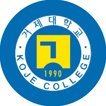
Geoje University
Shipbuilding and Offshore Engineering

Seojeong University
Global Industrial Engineering
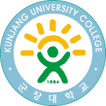
Kunjang University
New material processing for smart automotive machinery
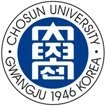
Chosun College of Science & Technology
Mechanical Engineering

Ajou Motor College
Global Automotive Engineering
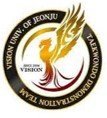
Vision University of Jeonju
Automotive Plastic Mold engineering

Yeongnam University
Smart Convergence Machinery
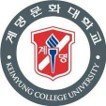
Keimyung University
New material processing for smart Mechanical Engineering
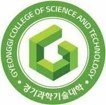
Gyeonggi College of Science & Technology
Biochemistry 3D Convergence Design Building and Fire Safety
Root Industry Skills Verification System
for E-7-4 Transition to the Skilled Worker Scorecard Visa

Overview
A skilled worker visa administered by the Ministry of Justice for foreign workers who have passed a skills test in the root industry. (E-7-4) Extra points (10 points) are awarded for scoring system evaluation.
Application Requirements
To be eligible, applicants must meet all three requirements listed below:
- A foreigner who has been legally working in Korea as a non-professional worker (E-9) for at least 5 years within the last 10 years. (However, even if the employment period is longer than 4 years, the employment period is considered to be satisfied if you have completed the third stage of the social integration program.)
Those who currently hold E-7-4 status and wish to extend the validity of their visa can also apply.
- Currently employed at the root industry company and have worked for the company for at least 30 months (901 days). (Valid rooted industry company confirmation letter, company with rooted technology specialist certificate issued within the last 3 years.)
- Currently hold a level 3 or higher in the Test of Proficiency in Korean (TOPIK) or have completed a level 3 or higher in the Social Integration Program (KIIP).

Visa Status
Student Visa to Permanent Resident
Student. Trainee
D-2, D-4
Professional
E-1~E-7
Resident
F-2
Permanent Resident
F-5
Fulfilling employment requirements for each status of stay
Those who have stayed in Korea for more than 5 years with E-1 to E-7 status and meet all the relevant requirements such as good conduct and ability to maintain a livelihood
* Basic quality requirements are met when completing the Social Integration Program (KIIP, Korea Immigration and Integration Program) level 4 or higher or when obtaining at least 81 points in pre-assessment
(F-5, Point-based Permanent Resident) Those who have stayed in Korea for more than 3 years as a point-based Resident (F-2) status
* In the case of Point-based permanent residents, requirements of basic knowledge are met when completing level 5 or higher in the Social Integration Program (KIIP, Korea Immigration and Integration Program)
Note: In the case of point-based talent, changing status directly from Student to Resident status is allowed if the relevant requirements are met
Working Visa to Permanent Resident
Non-Professional
E-9, E-10
Skilled worker
E-7
Resident
F-2
Permanent Resident
F-5
Those who have been legitimately employed in Korea for more than 5 years with E-9, E-10 status during the past 10 years and who meet the requirements including point system
* Points are differentiated according to the completion level of the Social Integration Program (KIIP, Korea Immigration and Integration Program), and additional points are given to those who have completed level 5 or higher
Those who have stayed in Korea for more than 5 years with E-7 status and who meet all the relevant requirements such as good conduct and ability to maintain a livelihood
* Basic quality requirements are met when completing the Social Integration Program (KIIP, Korea Immigration and Integration Program) level 4 or higher or when obtaining at least 81 points in pre-assessment
Those who have stayed in Korea for more than 5 years with E-7 or F-2 status of stay
* In the case of general permanent residents, basic knowledge requirements are met when completing level 5 or higher of the Social Integration Program (KIIP, Korea Immigration and Integration Program
Note: In principle, E-9 and E-10 status holders are restricted from changing their status to E-7, but changing status to E-7-4 (Skilled Worker Point system) is allowed as an exception
Application Process
Immigration laws and the process of obtaining a visa are very strict and crucial; there is no room for even the slightest error. Therefore, it is advisable to seek the assistance of an experienced professional to help you choose a stay method that aligns with your personal plans and circumstances, and then prepare accordingly.
VLO boasts extensive experience from our longstanding business relationship between Bangladesh and South Korea, making us the ideal partner to guide you.

If you are interested in an extended stay in South Korea for purposes such as studying, working, or obtaining permanent residency, we offer personalized 1:1 consultations.
Call us to schedule an appointment.
-VLO Higher studies and Migration Team-